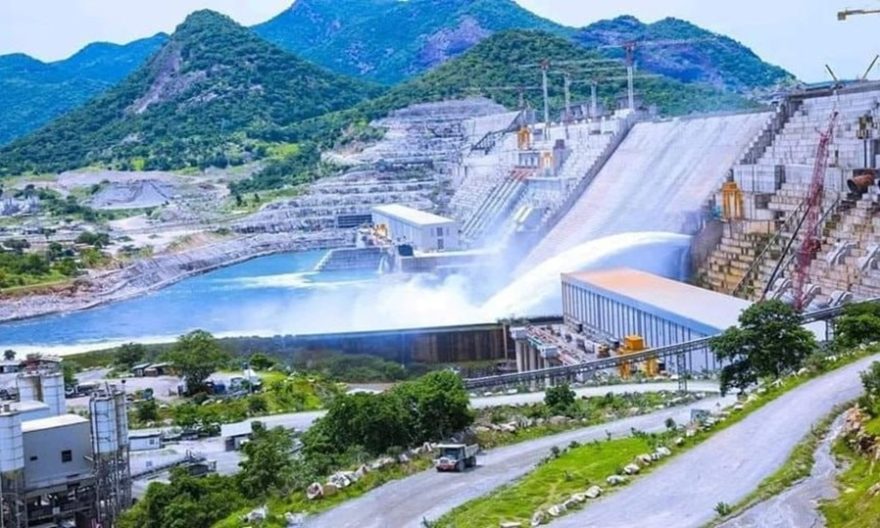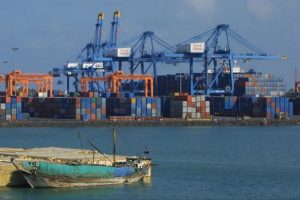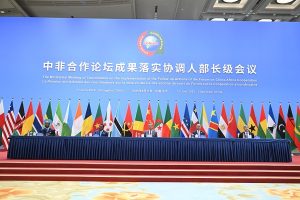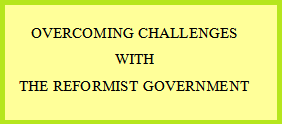
The construction of the Abbay Dam (Grand Ethiopian Renaissance Dam, GERD), is now practically fait accompli, a complete reality after so much resistance, perplexity, and opposition from various corners, which presumably do not have good feelings about Ethiopia’s growth and prosperity. We can say objections against its construction are now as good as dead.
Ethiopians have demonstrated to the world that if a country is united and acts as one behind a legitimate cause, there is hardly any limit to its achievements. The important thing was that the objective was clearly stated and articulated, and there are no international laws that are violated. Ethiopia has also cleared itself of violating no rights of other countries.
Egypt, above all, has always been an obstacle to whatever plans Ethiopia had on the Nile water. The fact is that Egypt has used the water without any interference from Ethiopia. Eventually, it has evidently reached the conclusion that the former was the sole country which owns and has the right to use the river. On many international media outlets, we have repeatedly heard reports stating: the Nile belongs to Egypt; the Nile is created for Egyptians and that no one, including Ethiopia, could use any drop of it.
We have even heard intimidating statements from certain extremist military officials of Egypt that if Ethiopia planned to use even a drop of the water, Egypt would be entitled to take whatever measure necessary to stop that. We have also heard Egyptian academics and intellectuals arguing that Egypt and the Nile are indissolubly tied and that no force on earth could break this bond – a bond that is historical and natural and comes from a divine force. Every Egyptian is taught in their schools that the Nile is an Egyptian river; an Egyptian property that actually originates somewhere in Egypt! Some are even convinced that the Aswan Dam is the source of the Nile!
When Ethiopia officially declared that it was about to construct a dam on the Nile, the first reaction from Egypt was to protest vigorously and make statements that were in practice amounting to a declaration of war. All Egyptian media unanimously made statements suggesting that Egypt should not sit idle while Ethiopia is blocking the river by filling the water into its huge dam. Others who were rallied behind Egypt sang the same songs. Egyptian leaders began to campaign in multiple fronts against the construction, diplomatically and politically throughout the world explaining how their position was right and complaining about how Ethiopia was violating international law.
On the other hand, Ethiopia was diplomatically well organized and engaged itself in explaining how things were actually proceeding. Ethiopian diplomats were given the assignment to explain the case to the international community that what Ethiopia was doing was not at all meant or intended to harm downstream countries. It was just harnessing part of the water of the Nile to a dam and generates electric power that would bring about light to millions of Ethiopians still living in the dark.
Capitalizing on the international practice and regime of trans boundary rivers, Ethiopia argued that it was not doing what others have not done and anyone in the shoes of Ethiopia would do the same because it has the obligation of properly utilizing its natural resources and potentials to change the livelihood of its citizens by uplifting them from poverty and misery.
This is also an obligation that the UN conventions on economic and social rights impose on governments to help improve the lives of their citizens. It would be a big failure for Ethiopia not to use and exploit its resources to change the lives of its citizens when it actually owns certain wealth such as the Abbay River. The famous arguments that downstream countries present against Ethiopia are not acceptable because they continue to claim that the river is their property given by nature. Some Egyptians even go to the extent of asserting that the Nile was created for them exclusively and Ethiopia does not have any right to use it!
Moreover, they are fond of saying that Ethiopia has multiple water resources. It has rivers. It has abundant rain and there is no need to engage in using the Nile water which, on the other hand, is the only source of life for Egyptians. They continue to refer to the colonial pacts Egypt signed in the nineteen hundreds with Sudan and England. The previous colonial accords signed between the two downstream nations and their master on the Nile water was carried out openly by disregarding Ethiopia’s every right on the water.
It is true that Egypt relies totally on the Nile for its existence because it does not have other resources. But recent studies have shown that if they dig underground they have sufficient water resources to satisfy their needs. The only reason why they do not do it is because it requires some expenses and it is not bestowed them freely. They do not want to put themselves in the shoes of Ethiopia- a country with more than fifty percent of its population are in the dark.
They do not want to recognize Ethiopia’s rights to develop its water resources to change the lives of its citizens. They do not want to admit that Ethiopia has the legitimate right of using the water resource without inflicting significant harm on downstream countries. They know that is how other countries that own trans-boundary Rivers have done not to block the rivers but use them to hit the turbines to generate power and then let go its natural course.
This is how Ethiopia has planned to do in the GERD project. It is a project that is long overdue due to financial constraints because as a poor country, Ethiopia could not harness the financial resources needed to begin with the construction.
Egypt’s campaign against any project on the Nile was highly supported by international financial institutions not to provide loans to Ethiopia. And, even Ethiopia’s traditional allies refrained from availing funds to Ethiopia because of the protests and recommendations from former not to do so. Egypt, as a country with massive political clouts in the geopolitics of the Middle East- a region that is key to the strategic interest of the West, did exert its influence and managed to keep at bay any assistance regarding this project on the Nile.
However, Ethiopia has not been discouraged by these developments because it knew that its intentions were not to harm the downstream countries by taking all the necessary precautions. Ethiopia has engaged many experts to study the case, and the outcome shows that there will not cause any harm on downstream countries due to the project. Moreover, Ethiopia has shown to the world that the filling of the dam was carried out by slow phases, gradually, without reducing the flow of the water in a manner that could harm the interests of downstream countries. After all, Ethiopia is reputed for its diplomatic records in the international arena and acted legally. The UN and other international organizations can testify to Ethiopia’s immaculate records in terms of respecting international law and practice. The case of Abbay Dam is an example.
In building this dam, Ethiopia hence had to rely totally on its own national resources. It did not benefit from any international loans or concessions due to the negative propaganda spread by downstream countries particularly Egypt. However, united Ethiopians have realized this dream being an example to other countries which are trying to pull out their citizens out of poverty using their natural resources. Ethiopia has shown that no one can stop it from asserting its legitimate rights when people are united.
Ethiopians responded to the call and rallied behind their government to realize this dream. It had lots of ups and downs, but after thirteen years of continuous diplomatic and political battles, Ethiopians have won. They have shown to other African countries that they cannot be bullied by some countries who believe they are superior or have more rights than others presumed to be poor or without huge international influence.
United Ethiopia has also shown to the world that it can achieve any legitimate objective. Today, as we celebrate the 13th anniversary Abbay Dam project, we rejoice it knowing that in unity we can come over any challenge or obstacle as we were able to defeat colonialists at Adwa 128 years ago. The success of this mission will also be a part of Ethiopia’s glorious history. The future generation of Ethiopians will be proud of this diplomatic success in a world that is increasingly being polarized and divided in factions and groups.
BY FITSUM GETACHEW
The Ethiopian Herald April 7/2024



